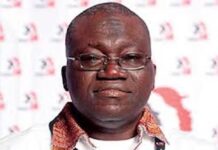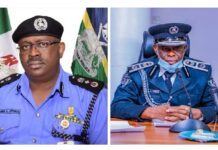By Chimezie Godfrey
#TrackNigeria: Aimed at tracking money laundering through multi-stakeholder approaches in ECOWAS countries, the Civil Society and Legislative Advocacy Centre (CISLAC), in collaboration with Transparency International (TI), has officially launched the Anti-Money Laundering Tracker.
The event took place in Abuja Thursday at the Regional Launch of the Anti-Money Laundering Tracker 2nd Stakeholders’ Conference with a theme: “Assessing Anti-Money laundering Regime in West Africa”.
Represented by the Director Legal at (CISLAC), Barr. Adeshina Oke, the Executive Director of the Dectre, Auwal Musa Rafsanjani said, Corruption in Africa and in particular in Nigeria was a prominent foe.
“It has eaten thin the fabrics of our natural life, impairs the rule of law and hampers the relationship between citizens and the state. As an African/Nigerian anti-corruption campaigner, I have witnessed over decades how corruption, impunity and poor governance decapitates African human capital.
“Nigerian has become a synonym for ‘fantastic levels of corruption’ and monumental graft. Imagine a country endowed with huge oil and gas deposits and billions of dollars in revenues per month has become ‘the poverty capital of the world’.
“Today, we are here to officially launch the Anti-Money Laundering Tracker for West African countries which are part of the project “Turning up the Pressure: Tackling Money Laundering through multi stakeholder Approaches in ECOWAS countries,” he said.
According to Rafsanjani, the tracker would highlight the fact that money laundering is a cancer that dries out the resources from a rich continent stricken by poverty and deprivation.
He cited the Financial Transparency Coalition as reporting that around $1 trillion of illicit financial flows leave developing countries through companies with hidden ownership, adding that out of this, an estimated $15.7 billion passes through the Nigerian financial system every year.
Rafsanjani stressed that money laundering was a problem that required global solution and backed by robust national laws and bilateral, genuine cooperation between concerned countries.
“Let me mention at this junction that I am very concerned that Nigeria and Ghana have been recently blacklisted for money laundering and terrorism risks by the European Union.
“The somewhat superficial explanation from the EU states that this is because of ‘strategic deficiencies’ in the anti-money laundering and countering terrorist financing regime, insufficient cooperation with the EU on the matter and lack of transparency about the beneficial owners of companies and trusts.
“I acknowledge that the current administration of the just re-elected President Buhari has made some progress on tracking the illicit financial flows and money laundering.
“However, we need to acknowledge that we still have problems investigating, prosecuting and sanctioning money laundering especially if politically exposed persons are involved. This is a clog in the AML regime. It also puts to question the effectiveness of our law enforcement agencies, efficiency of feedback mechanisms, interagency cooperation and the level of transparency of our financial institutions,” he said.
Organizations that were represented in the conference are GIABA, Transparency International (TI), Central Bank of Nigeria (CBN) and Code of Conduct Bureau, CCB), among others.



